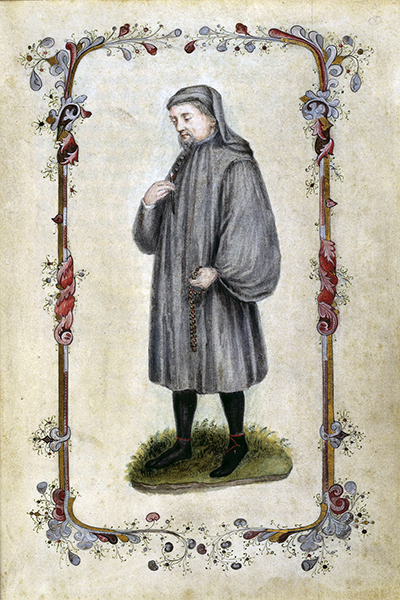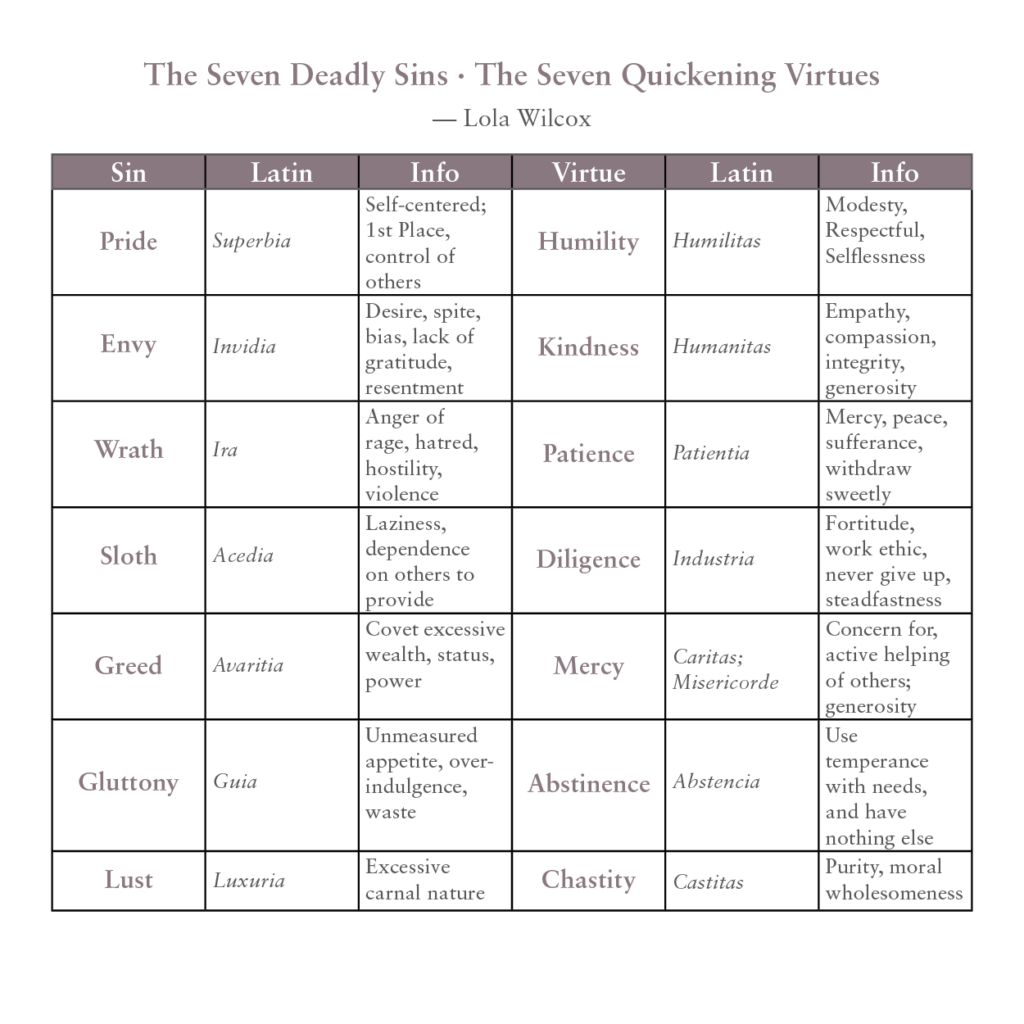Many are familiar with the Seven Deadly Sins. Sin is to be without, to miss the mark. Many mention them, including Plato, Aristotle, and St. Paul. “Deadly” refers to the belief that the sin/ill is deadly both to the “done to” and the “doer.” To sin puts your own life in danger, but also the lives of those who are or connected to the object of your sin.
Fewer are familiar with the balancing Quickening Virtues. Virtue begets life (Quickening) in both giver and receiver. The seven virtues are derived from the Psychomachia (“Contest of the Soul”), an epic poem written by Aurelius Clemens Prudentius (c. AD 410) entailing the battle of Virtues and Vices. The intense popularity of this work in the Middle Ages helped spread the concept of holy virtue throughout Europe.

Geoffrey Chaucer (1340-1400) in the Canterbury Tales has the Parson tell about the seven pairs of sins and virtues.
Pride/Humility (paragraphs 24-29)
Envy/Kindness (30-31)
Wrath/Patience (32-54)
Sloth/Diligence (55-63)
Greed/Mercy (64-70)
Gluttony/Abstinence (71-74)
Lust/Chastity (75-84)
The concept map is simple: seven polarities that balance each other. The polar opposite is the cure. If full of greedy instincts, rather than take, have compassion: practice Mercy. If Humility is a virtue, moving towards some Pride balances the possibility of our boundaries being crossed.
Included are the Latin words to provide layered definition and expanded meaning.

Right Action
Practicing these counterpart virtues protects against deadly sin or excessive virtue. We either generate death or life by our action/inaction. Either by action or inaction we create a healthy earth or one in danger, healthy or broken families, friends or enemies. Our habits separate us from or connect us to a divine design for our healthful, whole, and happy being.


